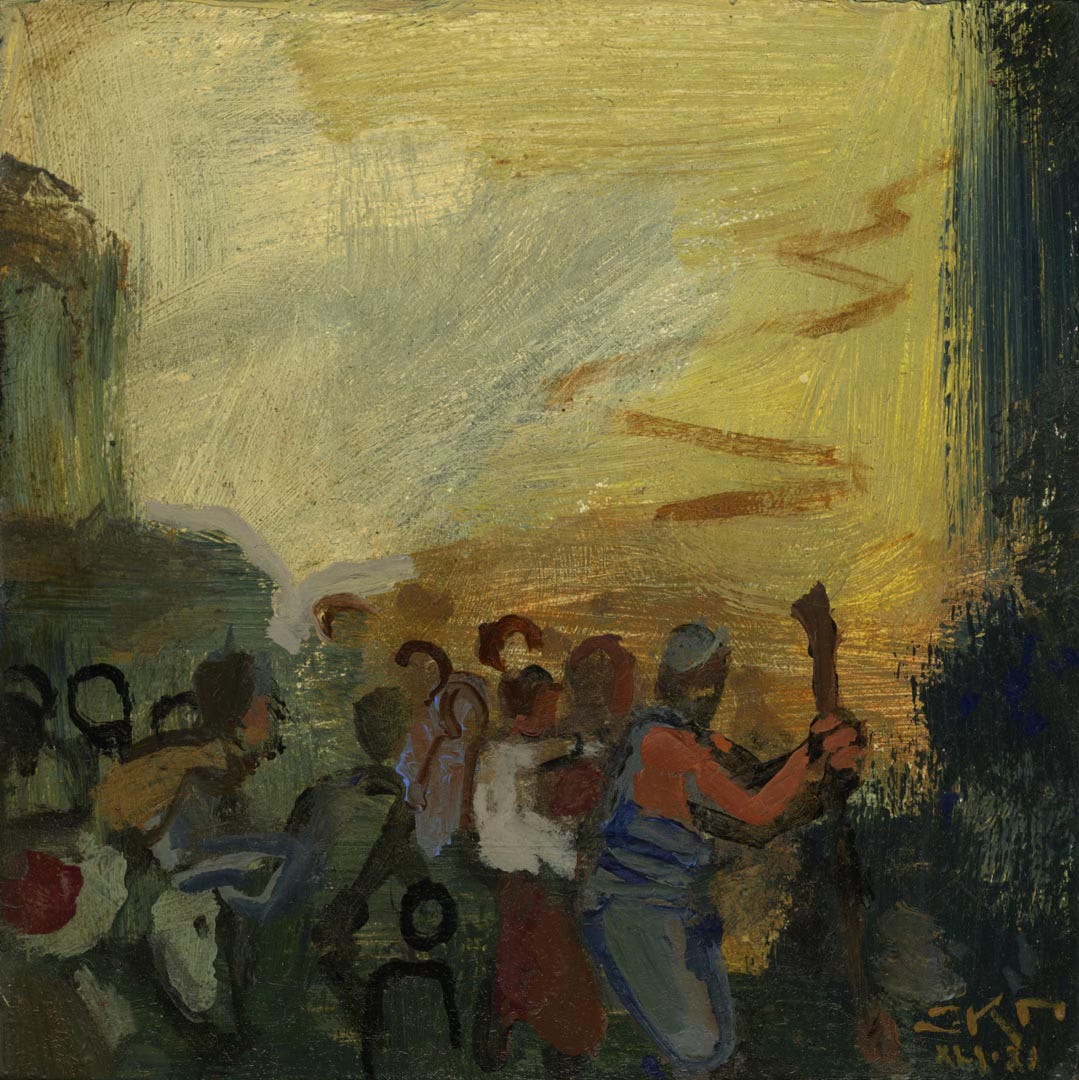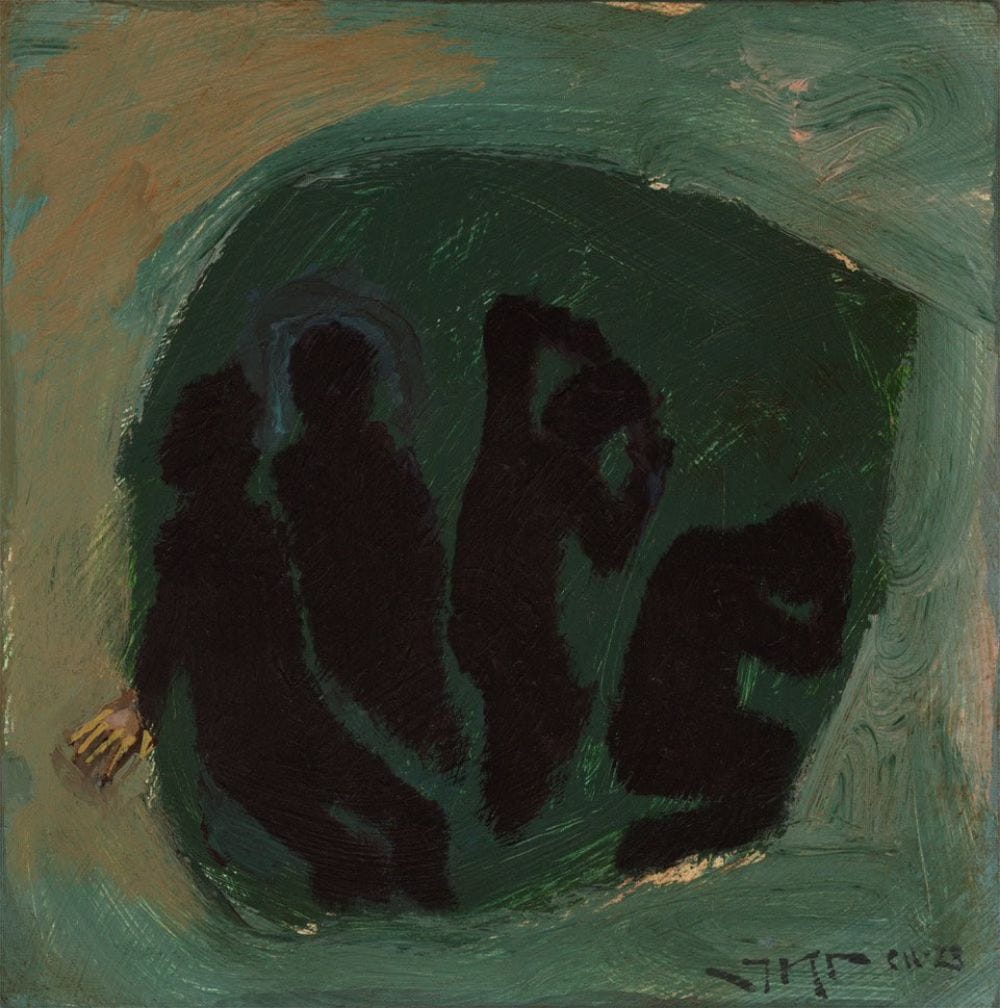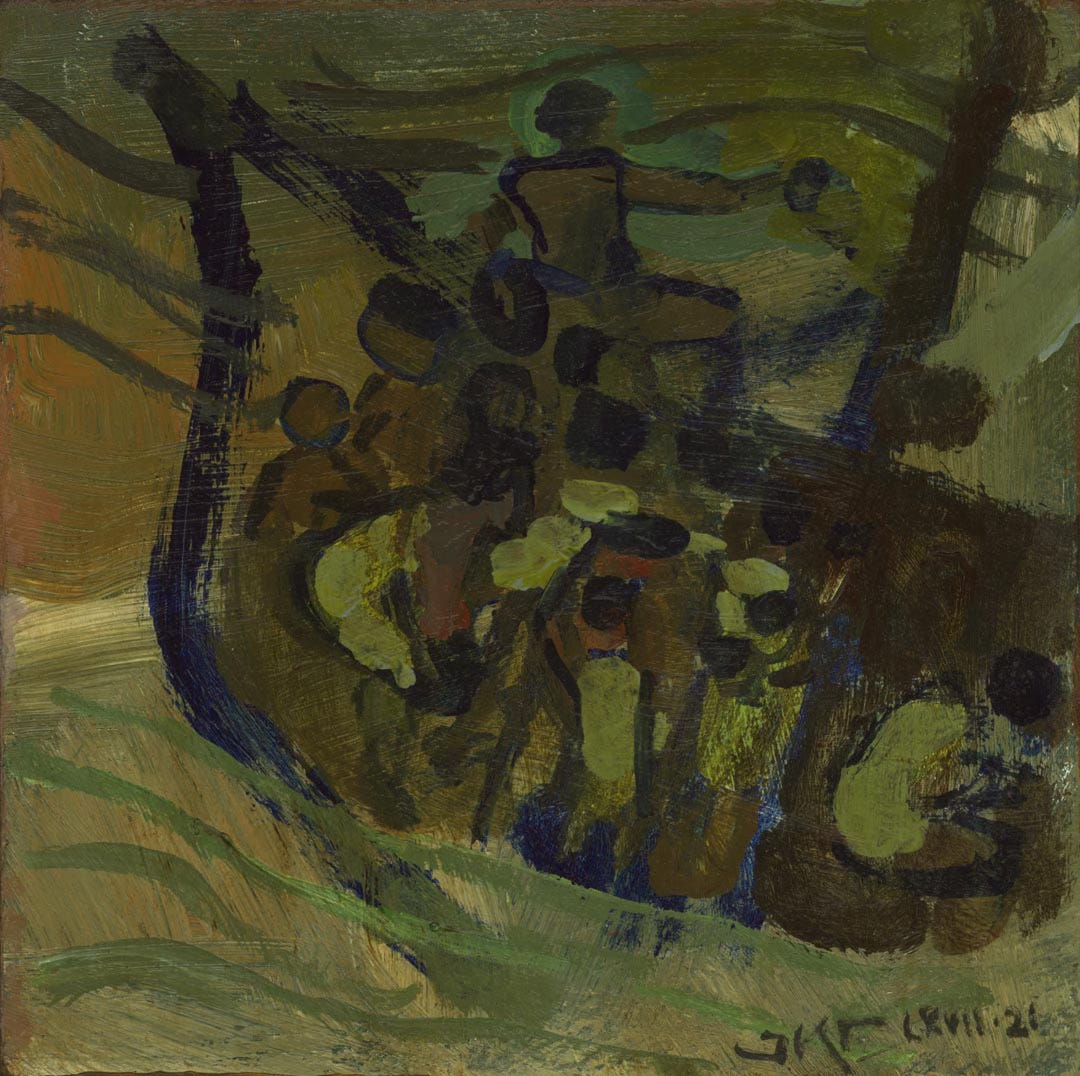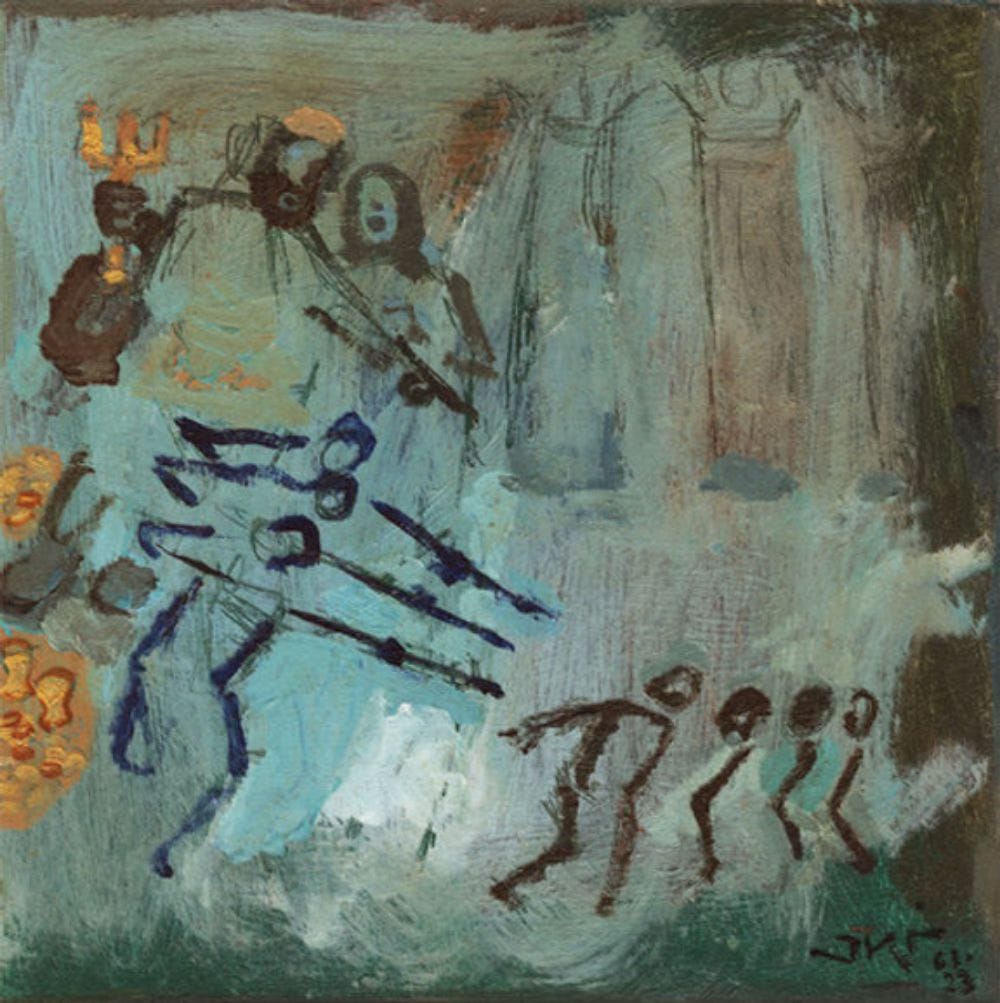The Promised Land: A Cautionary Tale
The Book of Mormon is a story about migration. From its first chapter to the closing verses, the characters of this sacred text are on the move, fleeing persecution, danger, and violence. Journeying through spaces of wilderness, they establish new territories before once again fleeing under threat of destruction. This cyclical migratory movement toward a promised land, and the subsequent failure to maintain the promise of the land, is so common that it becomes an archetype of the book.
Through the “case studies” of the Nephite and the Jaredite migrations, we see that God's promise in the land is fulfilled only in a community of solidarity, love, and humility. The promised land is not a reward, a deserved birthright, or a promise of superiority. Rather, this disquieting truth emerges: The promise of God is found in how we live, not in where we live. Indeed, the promise of God in the land is not a guarantee of unchallenged continuity, dominion, and prosperity. The cycle of prosperity and destruction in the Book of Mormon is a cautionary tale, calling us to confront ourselves.
As a graduate student of Franciscan theology, I am a Latter-day Saint stepping across the borders of my own faith tradition into the immersive study of another. Through this breathtaking border-crossing, I encounter universal principles that expand and enlighten my understanding, such as the Franciscan call to sine proprio—essentially releasing our insistence on possessions or entitlement. This call echoes through the Book of Mormon’s migration stories, as God’s people learn that the promised land is entrusted, never possessed.
Case Study #1: The Nephites
The first society in the Book of Mormon arises from a single family unit. The prophet Lehi, his wife Sariah, and his children—including the narrator, Nephi—flee Jerusalem around 600 B.C. to escape its prophesied destruction. Their migration is fraught with physical, relational, emotional and spiritual challenges. Leaving a life of prosperity and status, Lehi’s family embarks on a movement of insecurity and extreme risk. In this reverse-Exodus, God paradoxically removes them from their comfort and ease and “delivers” them into a liminal journey of vulnerability and loss.
Nephi utters a curious phrase in the Book of Mormon’s opening chapter that bears examination: “I, Nephi, will show unto you that the tender mercies of the Lord are over all those whom he hath chosen, because of their faith, to make them mighty even unto the power of deliverance” (1 Ne. 1:20). Nephi’s use of the word chosen here suggests that chosenness is tied to the promise of a faithful relationship with God.
Later, Nephi sees in a vision the rise of a great gentile nation on the promised land, often interpreted as the early Americas and the founding of the United States. In this vision, Nephi defines the “promised land” as one where the chosen inhabitants are rewarded with prosperity and divine sanction. Paradoxically, here he redefines chosen as an accomplishment—being chosen is earned or deserved. When we equate chosenness with deserved blessings, we create a dichotomy where those who aren’t chosen “don’t deserve” blessings. Fatimah Salleh and Margaret Olsen Hemming, authors of The Book of Mormon for the Least of These, reinforce this conclusion, arguing that chosenness can be “highly problematic in scripture and theology.” They add, “for if there is a chosen then there must be an unchosen. Any theology that would bifurcate and divide God’s children into the favored and unfavored can be a destructive and harmful mindset.” This way of thinking can breed dualistic, hierarchical relationships, leading to delineations of worthiness and unworthiness and potential discrimination in a divided society. Interpreting blessings or prosperity in terms of chosenness disrupts the chance for the beloved community that God is offering as the promise in the land.
In this context, we must be careful not to overlay Nephi’s statements with the dangerous framework of the “prosperity gospel,” which, as Duke Divinity professor Kate Bowler puts simply, is “the belief that God grants health and wealth to those with the right kind of faith.” If we are not careful, Nephi's vision can be seen as reinforcing the idea that obedience to God is equated with material success and prosperity. Thus, the vision may be incorrectly interpreted as the establishment of a prosperous gentile nation as a divine, transactional reward for special, chosen people, instead of what it could be: a place where faithful relationships with God and others promote transformational growth and mutual ascendency.
Nephi later states, “[the Gentiles] did prosper and obtain the land for their inheritance; and I beheld that they were white, and exceedingly fair and beautiful” (1 Ne. 13:15). We must pause and ask ourselves: who is prospering, and why? Do the Gentiles prosper because they are chosen? White? Beautiful? Wealthy? Holy? Any type of prosperity that is equated with power and privilege, whether economic, political, religious, or tied to race or gender, was abhorred by Jesus during his earthly ministry. Gospel examples abound, from Christ’s conversation with the rich young ruler to his condemnation of the religious leaders for their use of power to oppress and manipulate others. Ultimately, Christ himself modeled the rejection of privileged prosperity in an act of self-emptying on the cross. As Latter-day Saints, we must courageously dismantle any false notions of deserved prosperity and power, for there is “no real imitation of Christ without humility, poverty of spirit, austerity of life, and genuine charity.”
Relatedly, what or who is the great and abominable church that materializes in Nephi’s vision shortly after he is shown the land of promise? Nephi answers this for us when he defines this church as one that worships wealth and “slayeth the saints of God, yea, and tortureth them and bindeth them down, and yoketh them with a yoke of iron, and bringeth them down into captivity” (1 Ne. 13:5). These words are not meant metaphorically. As Sallah and Olsen Hemming write, “these are actual events that have happened throughout human history when people worship wealth. Colonialism, slavery, and war have all been, at their root, about commodifying people for the purpose of amassing riches.” These actions are hallmarks of wrong relationships, based in dominion, power, and greed. They arise from people who are not living in promise but who revel in rewards. No better example of the great and abominable church exists than our perpetual misunderstanding that prosperity equals wealth. When we equate wealth and prosperity with righteousness, the wants of the rich take priority over the needs of the poor. The liberty of the powerful takes priority over the freedom of the dominated. And the preservation of an order that excludes the marginalized takes priority over the participation and flourishing of those groups. Hierarchy breeds separation—the opposite of unity. To prevent similar divisions in our own society, we need to engage discomfort and challenge the idea that prosperity equals deservedness or chosenness.
This lesson is plainly manifest in Nephi’s descendants throughout the remainder of the Book of Mormon. When the Nephites view the promised land as a reward, their prosperity leads to pride, division, and wickedness. They disregard God’s commandments regarding relationship with him, with each other, and even with the land itself. Internal conflicts deepen, causing divisions and spiritual decline marked by corruption, greed, domination, and violence. The tragic Nephite saga ultimately climaxes when, in complete moral decay, the entire civilization is destroyed. Despite dwelling in a land of promise, the Nephites abandon their faith and values in favor of the social sins of materialism, conquest, exclusion, and pride.
It was a “choice land . . . above all other lands,” the prophet Jacob stated (2 Ne. 10:19). But perhaps the notion of tying one’s faith to an assumption that “God has given me the best land of all” is dangerous because it’s too easily undone.
Case Study #2: The Jaredites
The Jaredite people are introduced to us in the book of Ether; a society whose story begins with the Tower of Babel event as recorded in Genesis, with its resulting scattering of people. Though the Nephites and the Jaredites are two separate peoples generations apart, they both migrate to the same promised land, believed now to be the American continent. An important difference, however, is that unlike the family of Lehi, who left a life of prosperity and status, the Jaredite family seeks to flee the chaos and violence of their homeland. God “shows compassion” (Ether 1:40) and creates a pathway for this family to find safety, security, and liberation, similar to the preparatory journey of Noah’s people in the Old Testament.
The migration story of the Jaredite people is filled with theological depth worthy of prayerful reflection. They are directed not occasionally, but “continually by the hand of the Lord” (Ether 2:6) as they make a trans-Atlantic crossing. The presence of an “intimate God who carefully walks with people in an unknown land,” suggests again that God’s promise is not tied to geography, but to being in right relationship with him and with others.
Resembling many modern-day migrants who embark on dangerous journeys in makeshift boats, the Jaredites hope that the land they reach will offer them refuge and a better life. As their perilous journey towards the promised land unfolds, Fatimah Salleh and Margaret Olsen Hemming offer the following observation, calling us again to reassess our definition of prosperity:
What is a blessing and what is God’s favor? We may not expect to find God with a small band of bedraggled migrants in the middle of an ocean, but this scripture tells us that is exactly where God is. We must look to the people living in danger, living their lives in spaces of transition, and recognize how God moves with them. God is in the storm.
After “three hundred and forty days upon the water” (Ether 6:11), the Jaredite people finally reach the shores of the promised land, where they “[bow] down upon the face of the land and . . . shed tears of joy before the Lord” (Ether 6:12). At first, the Jaredite people “wax strong in the land” (Ether 6:18), suggesting an attitude of partnership with the earth. The Jaredites’ relationship with the land is one of stewardship, not dominion, resulting in an abundance of resources. Their relationships with God and with one another also bear good spiritual fruit.
A condition is emphasized in the text that whoever lives in the land must live righteously. What does that mean? The answer is revealed a few verses later: “Whatsoever nation shall possess it shall serve God, or they shall be swept off when the fullness of his wrath shall come upon them” (Ether 2:9). This is a chilling foreshadowing of not only the Jaredite civilization’s fate, but a caution to modern-day promised-land dwellers as well. Again, the promises of the land do not remain in effect when people reject right relationship with God and with each other. The Jaredites, like the Nephites, do not own the land. It belongs solely to God, the giver of all good gifts and the Creator of the Earth.
Tragically, the abundance and peace of the early Jaredite settlers is impermanent. Like the Nephite society, the Jaredite people begin to experience internal corruption and pride. As their wealth and power increase, they become more materialistic and self-serving, leading to a cycle of wickedness, violence, and political instability. Morality and righteousness deteriorate, and their once-prosperous society begins to unravel. The ultimate destruction of the Jaredites is both a political and spiritual tragedy, revealing, again, the consequences of conquest, greed, and pride. The last surviving Jaredite is left as a solemn witness to the complete annihilation of his people, marking a stark lesson about the inevitable outcome of turning towards power and corruption when gifted a land of promise and abundance—even “a land flowing with milk and honey” (Ex. 13:5).
The scholar Rosalynde Welch invites us to consider that the “parallel extinctions” of both the Nephite and Jaredite societies present a “stern reminder” that the promised land is not deserved or owned, but is a gift—and a gift with conditions. She observes that
A key motif [in this story] is the wave-like rhythm of people sweeping on and off the shores of the choice land. [The] message is that the land belongs to God, not to any particular group. For early readers with ears to hear, this theme resonated against manifest destiny, the belief that US expansion across North America was inevitable and divinely justified. [These stories], by contrast, show that inhabitants of the choice land are only tenants, subsisting by divine grace, not entitled claimants of an ethnic birthright. . . . The Jaredites and the Nephites were purged from the chosen land in twin tragedies of pride, violence, and unbelief. [The story] warns modern Gentiles that the same catastrophe awaits them, if they reject this urgent call to repentance from ancient voices in the dust.
Sine Proprio
The migrant journeys of both the Nephites and the Jaredites were meant to teach them how to live in right relationship to God, to the land, and to each other—a task that proved more challenging than their outer migration. After coming to power and becoming prosperous, these civilizations forgot their history and grossly misunderstood the promise of the land. As we reflect on the enduring, and yes, challenging truths present in these narratives, theological questions arise that provoke us: How does God define chosen? How do we define chosen? Who is chosen? How does God define prospering? How do we define prospering? What is the promised land, and who is it promised to? Are our definitions and assumptions different from God’s?
To help answer these questions internally, we must leave our own perspectives in order to see God and others with new eyes. This is well demonstrated in the Franciscan concept of sine proprio, which is Latin for "without anything of one’s own." Reflecting Saint Francis of Assisi's ideal of radical poverty, sine proprio means not claiming “ownership” of anything, including land, money, and status. Instead, Franciscans see themselves as stewards of God's creation. This does not mean that one lives as an indigent, without anything—involuntary poverty as a human condition is not a value—but that one takes a nonproprietary stance toward one’s own things and directs the use of all things toward the love of God and neighbor—toward sharing with others and the building up of the human community. Sine proprio suggests movement away from a hierarchical dualism that fosters a human impulse to exert a “despotic and chaotic dominion”over God’s natural and human creations, and towards one of care for the world as an internal necessity, for we are all inseparably connected. “Our caring is not the result of a moral duty, but a spontaneous reaction to our belonging to the universal family.”
Could it be that sine proprio is what God was trying to teach the Nephites and Jaredites? Was God trying to help them understand that the promised land was not meant to be dominated, conquered, or possessed with claims of birthright, ownership, and prideful superiority? Perhaps, then and now, the promised land is a place where all relationships are centered around responsibility to a providential God who continually gifts us, and as recipients of God’s gifts, we need to extend our arms in covenant belonging toward all who seek freedom and refuge. We must consider ourselves cautioned: The “travails of the promised land, stained with blood and bones, are written on a scarred landscape, and their message to those who now inhabit the land is clear: all that you build up will pass away.” All we build up will pass away. Indeed, all we really have that is ours to give is our will.
As members of The Church of Jesus Christ of Latter-day Saints, we covenant to live the laws of sacrifice and consecration. Being serious about these covenants leads us to practice sine proprio, progressing to the point where we are willing to let go of our white-knuckled grip on prosperity, power, what we deserve, and what we possess. We must be willing to “imagine a Zion society, wrestle with what that society consists of, and imagine how we could be part of that society.” Perhaps Zion is the ultimate measure and definition of the promised land—a place without borders, where we are “of one heart and one mind, and [dwell] in righteousness; and there [are] no poor among [us]” (Moses 7:18).
Jenny Richards recently received her Masters of Theological Studies degree from the Franciscan School of Theology at the University of San Diego. She will begin a chaplain residency in Salt Lake City in fall 2025. You can find Jenny's musings at @walkingtheroadtojericho.
Art by J. Kirk Richards.







